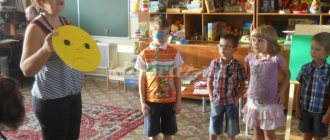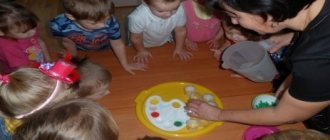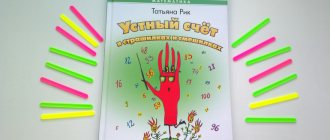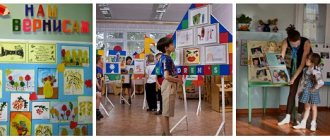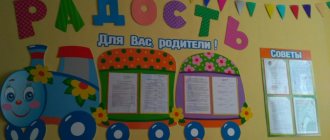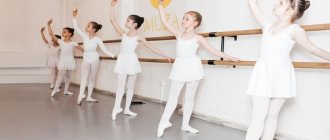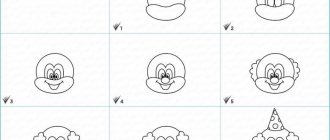Methodological recommendations for conducting a master class at a preschool educational institution
Vasina Tatyana
Methodological recommendations for conducting a master class at a preschool educational institution
Author: Vasina T. A. – head of GBDOU d/s No. 100
Methodological recommendations for conducting a master class
In these recommendations , we offer answers to the following questions: what is a master class , what are the requirements for its preparation and presentation, what are the criteria for its effectiveness.
In the pedagogical literature there are several dozen definitions of the concept “ master class ”
.
In these recommendations, we will rely on the following definitions, since we believe that they indicate the key properties of the master class .
A master class is the main means of conveying a conceptual new idea of one’s own (the author’s)
pedagogical system.
The teacher as a professional over the course of a number of years has been developing an individual (author’s) methodological system , including goal setting, design, the use of a sequence of a number of well-known didactic and educational methods , lessons, events, his own “know-how”
, takes into account the real conditions of work with various categories of students, etc. . P.
A master class is a special form of training, which is based on “practical”
actions of showing and demonstrating a creative solution to a specific cognitive and problematic pedagogical task.
A master class is a form of lesson that is not built on imparting knowledge, but a way to build it independently with the help of all participants in the lesson, pluralism of opinions, etc.
Master class is a pronounced form of apprenticeship with the Master , that is, the master transfers experience and skill , most often through direct and commented demonstration of work techniques.
So, summarizing the definitions presented above, we can highlight the most important features of the master class , namely:
1. a new approach to the philosophy of teaching, breaking established stereotypes;
2. a method of independent work in small groups, allowing for an exchange of opinions ;
3. creating conditions for the inclusion of everyone in active work;
4. setting a problematic problem and solving it through playing out various situations;
5. techniques that reveal the creative potential of both the Master and the master class ;
6. forms, methods , technologies of work should be offered, and not imposed on participants;
7. providing each participant with the opportunity to relate to the proposed methodological material ;
8. the process of cognition is much more important, more valuable than knowledge itself;
9. form of interaction - cooperation, co-creation, joint search.
When preparing a master class, you should pay attention to the fact that in the technology of conducting a master class, the main thing is not to communicate and master the information, but to convey the methods of activity, be it a technique, method , technique or technology . Conveying productive ways of working is one of the most important tasks for a Master .
Requirements for organizing and conducting a master class :
A master class is an original way to organize the activities of teachers in a small group (7-15 participants)
A master class as a local technology for broadcasting pedagogical experience should demonstrate a specific teaching technique or method , teaching methodology , technology of training and education. It should consist of tasks that guide the activities of the participants to solve the posed pedagogical problem.
Master class technology algorithm :
(approach of G. A. Russkikh)
* Presentation of teaching experience by a master teacher :
— a brief description of the students in the class is given, the results of preliminary diagnostics are substantiated, and the development of students is predicted;
— briefly characterizes the main ideas of the technology;
-describes achievements in work;
- the effectiveness of students’ activities is proven, indicating the effectiveness of the technology;
- problems and prospects in the work of a master teacher .
*Representation of the training system:
-describes the system of training sessions in the mode of the presented technology;
- the basic work techniques that the master will demonstrate to the audience are determined.
* Conducting a simulation game:
-the master teacher conducts a training session with students, demonstrating techniques for effective work with students;
- listeners simultaneously play two roles: students in the experimental class and experts present at the open lesson.
*Modeling:
-teacher-students perform independent work on constructing their own model of an educational lesson in the teacher-master ;
- the master performs the role of a consultant, organizes and manages the independent work of students;
-the master , together with the students, discusses the author’s models of the training session
*Reflection:
is held based on the results of the joint activities of the master and students .
Master's position
Teacher - Master conducts a lesson with students , demonstrating techniques for effective work with students.
When conducting a master class , the Master never seeks to simply transfer knowledge. He tries to involve participants in the process, make them active, awaken in them what is hidden even to themselves, understand and eliminate what hinders him in self-development. All the Master’s and his actions are aimed at engaging the imagination of the participants, creating such an atmosphere so that they express themselves as creators. This is soft, democratic, discreet management of activities.
The master creates an atmosphere of openness, goodwill, and co-creation in communication.
The master excludes official evaluation of the work of master class , but through socialization and publicity of work provides an opportunity for the teacher’s self-assessment and self-correction.
In relationships with colleagues, the Master must apply a certain style, demonstrating his personal qualities: communication, general cultural development, intelligence, views, beliefs, worldview, character, will, temperament, etc. The author's technologies presented within the master class do not have the property of being photographic reproducibility; however, each of them carries an ideological charge and has many reproducible details, techniques, and elements of teaching skill .
Particular attention should be paid to:
- speech and voice (tone, strength, expressiveness, diction, intonation, speech technique)
;
- facial expressions, gestures, managing emotions, reading the emotional state on the face;
- pantomime (posture, ability to stand, sit, observe the behavior of participants)
;
- the ability to concentrate on the subject of conversation, mastery of mnemonics, autogenic training, lack of stiffness;
—the art of communication: psychological selectivity, the ability to pay pedagogical attention, empathy;
— pedagogical improvisation : the ability to work according to a plan “in your head”
, attract personal experience, manage unplanned situations;
- psychological vigilance, the ability to identify “geniuses”
and support
the “lagging behind”
;
— communicative culture, ability to conduct dialogue, discussion;
- sense of time.
Quality criteria for preparing and conducting a master class
To determine the effectiveness of preparing and conducting a master class, we suggest using the following criteria.
Presentation. The severity of an innovative idea, the level of its presentation, the culture of presentation of the idea, the popularity of the idea in pedagogy, methodology and practice of education.
Exclusivity. Pronounced individuality (scale and level of implementation of ideas)
. Selection, completeness and originality of solutions to innovative ideas.
Progressiveness. The relevance and scientific nature of the content and teaching methods, the presence of new ideas that go beyond the standard and correspond to the trends of modern education and teaching methods of the subject , the ability not only for methodological , but also for scientific generalization of experience.
Motivation. Availability of techniques and conditions for motivation, inclusion of everyone in active creative activity to create a new product of activity in the classroom.
Optimality. Sufficiency of the means used in the lesson, their combination, connection with the goal and result (intermediate and final)
.
Efficiency. Performance obtained for each master class . What is the effect of development? What does this give specifically to the participants? Ability to adequately analyze the results of one’s activities.
Manufacturability. A clear algorithm for the lesson (phases, stages, procedures,
Artistry. Sublime style, pedagogical charisma, ability to improvise , degree of impact on the audience, degree of readiness to disseminate and popularize one’s experience
General culture. Erudition, originality of thinking, communication style, culture of interpreting one’s experience.
Master class as an effective form of working with parents in a preschool institution
Education is a difficult matter, and improving its conditions is one of the sacred duties of every person, for there is nothing more important than the education of oneself and one’s loved ones.
Socrates
Preschool age is a bright, unique page in the life of every person. The emotional responsiveness of preschoolers is actively developing through exposure to art, music, literature, and folk culture. Kindergarten is a place where a child gains experience of broad emotional and practical interaction with adults and peers in the most significant areas of life for his or her development.
One of the urgent tasks of our time is the interaction between preschool educational institutions and families. The teacher’s task is to create conditions for the active participation of the child’s family in the life of the kindergarten.
Our teachers had many questions:
− How to interest parents in working together?
− What form of interaction with parents is most effective?
One of the ways to solve this issue is: establishing unity in raising children, pedagogical education of parents. Master classes for parents are one of the most effective forms of working with families, which allows them to realize the need to establish mutual understanding between teachers and parents, to exchange knowledge and experience. Each master class solves not only practical problems, but also educational ones.
In our group “Friendly Family” we carry out joint activities with children and parents through master classes. To attract parents, we made invitations for each master class, where we tried to reflect the theme of the upcoming meeting. In the process of conducting master classes, it was important for us to interest parents, create an atmosphere of mutual understanding, establish emotional support, and help achieve the planned result.
We organized master classes: on quilling, origami, conducted “We want to know everything” experiments, made amulets dolls, and performed three-dimensional appliqué. In the course of joint work, the quality of the educational process improves through the organization of joint creative activities of parents, children and educators. And the most valuable thing is that after the master classes, parents can use the knowledge gained by organizing classes with their children at home. Parents have a great interest in joint activities with their children and a desire to spend more time with them.
A special creative atmosphere arises when we organize creative master classes on the eve of the holidays “New Year”, “Brave Soldiers”, “Mother’s Day”, “Great Easter”, “Stars of Victory”. We involved fathers, grandfathers, and brothers in making crafts for mothers. And for dads, we invite mothers, sisters, and grandmothers to a master class. Parents willingly responded to the offer to prepare gifts and surprises for the holidays. Direct productive activity made it possible to interest all participants. Our talented dads, who attended our master classes with great pleasure, turned out to be a real discovery for the children and us teachers. This work allows us to increase the psychological and pedagogical competence of modern parents, where they are in the position of an active participant in activities.
We bring to your attention the master classes that we conducted:
- Doll "Wisher".
Our students took part in the city project “Okay Week” with the goal of strengthening and preserving family values and traditions. As part of the “Ladnaya Week”, we held a master class with parents and children on making the folk doll “Zhelannitsy”. A doll is a sign of a person, his play image-symbol. In this role, she focuses time, cultural history, the history of the country and people. The necessary materials for the work were purchased, and we began to meet in our creative workshop. Of course, we were worried, would moms and dads respond, would they find time to spend the evening in kindergarten? Now we can say with confidence that we succeeded! Parents and children made a “Wisher” doll. The meeting turned out to be informative, warm and interesting. Russian folk music was played to create the atmosphere. Each family tried to ensure that their doll was not like the others. Everyone made wishes and took home their dolls. These are the wonderful dolls we got.
- Creative laboratory “I want to know everything.”
Science experiments, including experiments with water, are an easy way to get your child interested in science and a great family activity. Before the New Year holidays, we invited our parents to the “I Want to Know Everything” creative workshop, where we plunged into the world of discovery. They told and showed how and what they can do to keep children occupied on long, cold evenings. Parents enjoyed immersing themselves in their childhood and took part in the master class. Together with our parents, we conducted experiments with water, magnets, toothpicks, and became acquainted with static electricity.
The following experiments were carried out in a fun and playful way: “Dry napkin”, “Flowers on water”, “Get paper clips from a jar of water without soaking the magnet”, “Move an object”, “Air in water”, “A star made of toothpicks” . One of the most exciting and educational experiments were “Dry Napkin” and “Toothpick Star,” where parents immersed themselves in research activities. From experiments, parents learned how to put a container in water and leave a dry napkin. How to get all the paper clips out without getting your hands wet or emptying the jar. Like broken toothpicks and a drop of water, a star magically appears. They joyfully and enthusiastically participated in all experiments. In the process of experimentation, parents had the opportunity to satisfy their inherent curiosity and get answers to the questions that concern them: “Why? For what? How? What will happen if...?”, we felt like scientists, researchers, discoverers and, for a short time, small children.
- "Gifts for Dads"
The holiday of our beloved dads is approaching. Our guys especially enjoy preparing gifts for dads. They always associate a gift with a surprise, which dad cannot talk about, otherwise it will no longer be so pleasant and unexpected. We decided to organize and conduct a master class “A Gift for Dad” and invited mothers and grandmothers. Together with the children, they made a three-dimensional postcard for dads. The parents were surprised that such wonderful gifts could be made from such simple materials. Everyone tried very hard, because this was a gift for dad, and the children happily gave them at the holiday. All dads really liked the gifts.
4. “Bouquet for Mom.”
Mom is the most precious word in every child’s life. What to give your mom for Mother's Day? One of the best gifts for every mother can be a homemade Mother's Day card. What could be more valuable to a mother than work done with the hands of her child, and for mothers this is a pleasant and valuable gift. Dads, grandfathers and older brothers gladly took part in the master class. We made a voluminous bouquet of flowers for mothers. Together with their children, dads carefully and lovingly made their bouquets and decorated them with hearts. We got such wonderful bouquets.
- Quilling and origami.
At this master class, we told parents about the quilling technique and offered to make a collective work of a bouquet of flowers that now decorates our group. Parents really enjoyed working with this technique, they even took the diagrams of the elements with them to share the knowledge they gained with their family. We talked about the origami technique, which fascinates by transforming a simple square of paper into various images - a boat, a house, an airplane, etc. Each craft created is a masterpiece that both children and parents enjoy.
A master class is an active form of training for parents, in which knowledge is acquired or improved through an activity-based approach through self-organization and activation of the creative potential of each participant. Carrying out pedagogical activities, we fill children's lives with interesting activities and ideas, including each child in meaningful activities, contributing to the realization of children's interests and life activity. Next year we plan to hold as many interesting master classes as possible for parents who are looking forward to meetings in our “I Want to Know Everything” workshop.
Summing up all our work, we are convinced that the master class is a very effective form of working with parents. We noticed how parents open up at master classes. With each new meeting, more and more parents came to our workshop. Communication took place in a friendly atmosphere. It was very pleasant to hear words of gratitude from the participants of the master class and the desire to come again. We are convinced that the master class is an effective means of ensuring communication and unity in the work of the kindergarten and family, allows parents to reveal their creativity, promotes the development of children’s creative abilities, and strengthens trusting relationships between teachers and parents.
Literature:
- Childhood: Program for the development and education of children in kindergarten / V. I. Loginova, T. I. Babaeva, N. A. Notkina, etc.; Ed. T. I. Babaeva, Z. A. Mikhailova, L. M. Rurovich: Publishing house. 3rd, revised. - 244p.-SPb.: Childhood Press, 2003.
- Dron A. V.; Danilyuk O. N., “Interaction of preschool educational institutions with parents of preschool children” - M.: “Childhood-Press”, 2013.
- Krulekht M.V. Preschooler and the man-made world. - St. Petersburg. “CHILDHOOD-PRESS”, 2002.-160 pp.: ill. (Childhood program library)
Summary of consultation for teachers “How to conduct a master class correctly”
Irina Gridchina
Summary of consultation for teachers “How to conduct a master class correctly”
(Slide 2)
A master class is an open pedagogical system , with the help of which teachers convey new opportunities for teaching practice . This is an up-to-date form for generalizing and disseminating innovative pedagogical experience . Its peculiarity lies in the fact that it is based on the practical actions of the teacher and includes a creative solution to a cognitive task or problem situation.
In methodological work, the master class occupies a leading place. Master classes are very popular , where teachers have the opportunity to learn the technology of making a product and obtain it themselves. This makes this methodological form attractive for educators.
Key rules for conducting a master class
A master class is a methodological innovative form. At the heart of any master class is the personality of an innovative teacher , who is characterized by new thinking and his own view on a topic or problem.
During the master class, teachers get acquainted with a specific technology or methodology prepared by the master teacher . At the beginning of the master class, he creates a problematic motivating situation that stimulates participants to further complete tasks and arouses their interest.
Any master class should consist of tasks that direct the participants’ activities to achieve the goal. But within each task, the participants are absolutely free. They independently choose the path of research, the means and methods to achieve the goal, the pace of work, look for answers to problematic questions, and draw conclusions. At the same time, the master teacher provides them with methodological materials and developments for further independent activities.
As a result of the master class, teachers jointly master a new technology or methodology and create their own product.
The master teacher must provide an interactive form of communication during the master class , i.e., give the participants the opportunity to practically get acquainted with the proposed technology and techniques.
Thus, during the master class there is no need to impart new knowledge to the participants. They gain knowledge or skills themselves with the help of all participants in the event.
Each teacher should have the opportunity to express their own opinion, indicate their position and offer an independent solution to the problem stated in the master class . This approach is interactive.
The master class has a certain structure: (Slide 3)
• theoretical part;
• display or demonstration of process technology;
• practical part – creating a product;
• product presentation (advertising)
;
• conclusions (reflection)
.
Based on the structure of the master class, for conducting it is built . (Slide 4)
According to him,
a master teacher :
• defines tasks, formulates a problem situation;
• introduces the technology to the participants of the master class ;
• forms working creative groups;
• organizes independent practical work of teachers with materials ;
• invites teachers to present and discuss the results of their work.
The most crucial moment is thorough preparation for the master class , which is also carried out in several stages.
I suggest that you think about the arrangement of tables and chairs for practical work in advance. There are many ways to accommodate master class , depending on the goals and form of behavior. (Slide 5 -
An example of preparing and conducting a master class
Let's consider one of the options for preparing and conducting a master class .
This will be a master class to familiarize teachers with the technology of making laptops.
The structure of the event includes three parts: general organizational (theoretical aspects, basic practical (work of participants in separate workshops )
and final
(presentation of the resulting products)
.
PLAN FOR THE MASTER CLASS “Using laptops in working with preschool children”
• A story about the types of laptops and the possibilities of their use.
• Creation of creative groups and distribution of work topics
• Practical part ( workshops )
- creation of laptops.
• Presentation of laptops
• Discussion and exchange of opinions.
the master class preparation stage, an initiative group is formed. It may include methodologists or senior educators, educators who are proficient in practical technologies and act as master teachers , and proactive parents.
The initiative group determines the topic and number of workshops , resolves organizational issues: prepares the premises, necessary equipment and materials, prepares presentations.
After determining the goal and stages of practical work, the participants are divided into creative groups of 3–4 people. In the workshops , they determine the shape of their laptop and make it themselves.
At the final stage - the advertising stage - the participants of the master class demonstrate the printed laptops and offer options for their use in educational activities.
The goal of such practical master classes is not just to make a product, but to think through its subsequent use in gaming, educational research and other types of activities.
Making laptops is a fun activity. A teacher who has perfectly mastered this technique can not only make them himself, but also involve children and their parents in the work. A laptop can be used both to study any subject or phenomenon, but also to consolidate knowledge on a given topic. A child can work with a laptop either independently or in a group of peers. Creating a laptop can be a great way to complete any project.
Algorithm for preparing a master class for teachers
1. Determine the topic of the master class . It should be interesting and exciting and reflect the problem you are working on. Participants in the master class must know in advance what they will be shown. The topic of the master class can be anything - creative productive activity, modern educational technology, non-traditional pedagogical techniques , original forms of organizing educational activities, effective use of technical teaching aids, etc. It can contain the basics of education for preschool children and be designed for young teachers . In this case, try to find a non-standard move or alternative points of view.
2. Gather information on the topic. Even if you are fluent in practice, be sure to study the theoretical side of the issue. This will help you answer in detail any question from a master class about the stated problem.
3. Formulate the purpose of the master class . Ask yourself what result you want to achieve, what the master class .
4. Define tasks. They will help you achieve your goal.
5. Highlight a problem or question that is of interest to the audience and will introduce participants to the topic of the master class .
6. Determine the form of the master class . Think about what technique you can use to interest your audience. Modern pedagogy allows for different techniques. The more vivid and unexpected they are, the sooner you will achieve your goal. However, the master class must be methodologically sound. Therefore, be able to justify why you are using this particular technique.
7. Prepare the necessary equipment. Equipment, visual aids and materials should illustrate the main directions and important stages of your work. Prepare an exhibition, make several manuals that will demonstrate the process at its different stages. This could be a computer presentation or a video. Think and decide what supplies participants should bring with them.
8. Make a plan for the master class . Without it, you may miss or confuse something. Based on the information you have collected, create a structure for your workshop . Write it down point by point and indicate the approximate time needed to complete each step. Leave some time for unforeseen circumstances and deviations from the topic, answering questions from participants.
9. Prepare a sample text that you will pronounce at the master class . There is no need to memorize it, but you can say it several times in front of a mirror or in front of colleagues. This will allow you to feel more confident and hear possible errors in the content of the speech. Write down the main points on a piece of paper and take them with you.
10. Prepare the final part of the master class . At the end of the presentation, do not forget to praise all participants and discuss the results. Highlight the merits of each work. Tell participants how they can use the workshop .
Master class for preschool teachers. Educational technology "Children's Council"
Master class for kindergarten teachers “Educational technology “Children’s Council” as a condition for the individualization of children.”
Author: Irina Vyacheslavovna Makarova, teacher of MBDOU No. 23 “Golden Cockerel”. This master class will be useful for preschool teachers, students of pedagogical faculties, and parents. Goal: to search for new forms of work and ways to use the “children’s council” technology in a preschool organization in the conditions of the Federal State Educational Institution. Plan of the master class: 1. Introductory speech; 2. Practical game exercises; 3. Summing up, exchange of opinions. Number of participants: up to 10 people. Duration: up to 20 minutes. Progress of the master class: Today, in connection with the introduction of the Federal State Educational Standard in preschool education, each of us, a teacher standing at the origins of childhood, needs to clearly understand that in our hands is the most valuable thing in a person’s life - a child.
One of the main components of a teacher’s pedagogical competence, in my opinion, is respect and recognition of the student’s personality and support for children’s uniqueness. The future development of a preschool child depends on how much we adults are guided by this. The educational technology “Children's Council” is designed to help teachers with this. Dear colleagues, how many of you are familiar with and work with this technology? I think you will agree with me that the children's council is the place and time for business and spiritual communication between adults and children, which sets the meaning of the entire life of the group. The purpose of the children's council is to unite children and adults around events, joint affairs, and actions. The Children's Council does not have a specific structure. For ourselves, we have identified some semantic parts: greetings, communication games, news exchange, philosophizing. In a joint dialogue, we discuss thoughts, ideas and plans, draw up an activity plan, determine who will do what, and in accordance with the choice, the children are distributed among activity centers. This form of interaction presupposes the active participation of children in discussing problems and making decisions, organizing educational activities based on the free, conscious and responsible choice by children of the content of their education. So, the Children's Council involves a general meeting of a group of children together with teachers. Everyone gets the opportunity to talk about events in their lives, describe their experiences, share desires, and receive new information from others. At the initiative of children and adults, upcoming classes are planned, group rules are established, and various games and exercises are conducted. I invite colleagues to participate in the master class and propose to unite in two groups. In order to understand what children's advice is, it is necessary to determine for yourself an understanding of this form of interaction. I present to your attention the following exercises: “CONTINUE THE SENTENCE” For the first group of participants: •Children’s council is…. (your answer options). For the second group of participants: •Children's council does not... Time to complete the task is 3 minutes. And I will ask you, dear audience, to answer the following question: “A MODERN PRESCHOOL CHILD, WHAT IS HE WHAT IS HE? WHAT QUALITIES DOES HE HAVE? •curious, interested, actively exploring the world; •capable of organizing their own activities; •benevolent, able to listen and hear his partner, respecting his own and others’ opinions; •ready to act independently and be responsible for their actions. Thus, we have a portrait of a modern preschooler. Now let's go back to our groups and listen to what they did. Children's advice is...
-choice; -participation; -complicity; -news; -initiative; -cooperation; -discussion; -interaction; -life creativity; -communication; -assistance; -planning; -activity; -communication; -Union.
Children's advice is not...
-class;
-educational activities; -has regulations; -has uniform rules; - obligatory participation; -compulsion; -has structures; - educational and training activities; - single share. Despite all the apparent simplicity of holding a children's council, I want to say that problematic situations often arise and they cannot always be resolved quickly and masterfully. I suggest that my colleagues do this now. “WHAT TO DO IF...” We work in groups. Task for the first group: 1. If the child chooses nothing during joint planning. What should I do? Task for the second group: 2. If the child chooses the same center. What should I do? Work schedule: 3 minutes. While the groups are preparing, let's talk some more about it. Please come up with a proposal using the abbreviation GEF. Our version: The philosophy of genius is the basis of meaning. Let's return to the tasks of our groups and listen to their answers. 1. If the child chooses nothing during joint planning. What should I do? •After most of the children have made their choice, repeat again to the remaining children what materials are available in the activity centers, name possible actions if necessary, wait a minute and repeat their decision. •Invite a child who is at a loss to choose to join your work. •Offer him (if the child is psychologically ready to cooperate with you) a game of scouts (aliens, journalists), during which he will have to go around all the centers of activity and tell you about what interesting things the children are doing. It is important here not to give in to negative statements (they don’t do anything, they play around). Keep your child in this role for several days: “And there is a special task for you - you will again be like a scout,” and perhaps soon you will notice his desire to make his own choice. 2. If the child chooses the same center. What should I do? •If a child is enthusiastic, do not disturb him. •If it is necessary to change a sedentary state, offer to move around and carry out an important task. •If there is no dynamics in the child’s actions, offer variety with additions that are attractive to the child. •“Close” the center for a while, citing a ban. I suggest you answer the question: DO YOU SEE PARENTS PARTICIPATING IN THE CHILDREN'S COUNCIL? IF SO, WHAT IS THEIR ROLE? For both groups. While the groups are preparing, I propose to perform a practical task for the audience. Express your attitude towards the children's advice, if your attitude towards this technology is positive, then put the pebble in a jar with a cheerful smiley face, if your attitude is neutral or dubious, then put it in a jar with a sad smiley face. After the participants' responses, I will summarize. A parent is an active, voluntary, equal participant. Interaction with parents in the children's council: •We invite you at a time convenient for parents. •We wonder if our help is needed. •We create instructions for parents about what and how to do in activity centers. •We encourage parents, but do not ask unnecessary questions and do not interfere. •We openly and sincerely thank them and involve them in discussing the lives of children in the group. I want to thank my colleagues for their work in the master class and give them booklets. Reflection. The result with jars. Whether or not to use this form of interaction with children is up to you, dear colleagues! But I would like the Children's Council to take place. Because... •Knowledge of one’s rights and responsibilities, the ability to freely express one’s opinion is one of the indicators of a socially developed personality. •The participation of every child in decisions affecting his interests is of particular importance for achieving social justice and social inclusion, for equality of opportunity. •The child's right to be heard and taken seriously is one of the basic values of life. I would like to draw attention to the last phrase: The child’s right to be heard and taken seriously is one of the basic values of life. At the end of our meeting, I want to tell a parable. A long time ago, in an ancient city there lived a Master, surrounded by disciples. The most capable of them once thought: “Is there a question that our Master could not answer? “He went to a flowering meadow, caught the most beautiful butterfly and hid it between his palms. The butterfly clung to his hands with its paws, and the student was ticklish. Smiling, he approached the Master and asked: “Tell me, what kind of butterfly is in my hands: alive or dead?” He held the butterfly tightly in his closed palms and was ready at any moment to squeeze them for the sake of his truth. Without looking at the student’s hands, the Master answered: “Everything is in your hands.” Our skill, dear colleagues, determines how a child will emerge from kindergarten: and I believe that he will be a creative, inquisitive, thoughtful person, ready to consciously make choices and be responsible for them. All in our hands! Thank you for your attention and cooperation!
We recommend watching:
Development of communication skills of children 5-7 years old in theatrical activities Spiritual and moral education of preschool children Introducing preschool children 5-7 years old to Russian folk culture Lesson notes for preschoolers. Memorizing Serov's poem "Snowdrop"
Similar articles:
Methods of conducting physical education classes in kindergarten
Morning exercises in the preparatory group in a playful way
Teasing games for children 5-6 years old
Dance festival in kindergarten for children 5-7 years old. Scenario
Outdoor games as a means of harmonious development of a child
